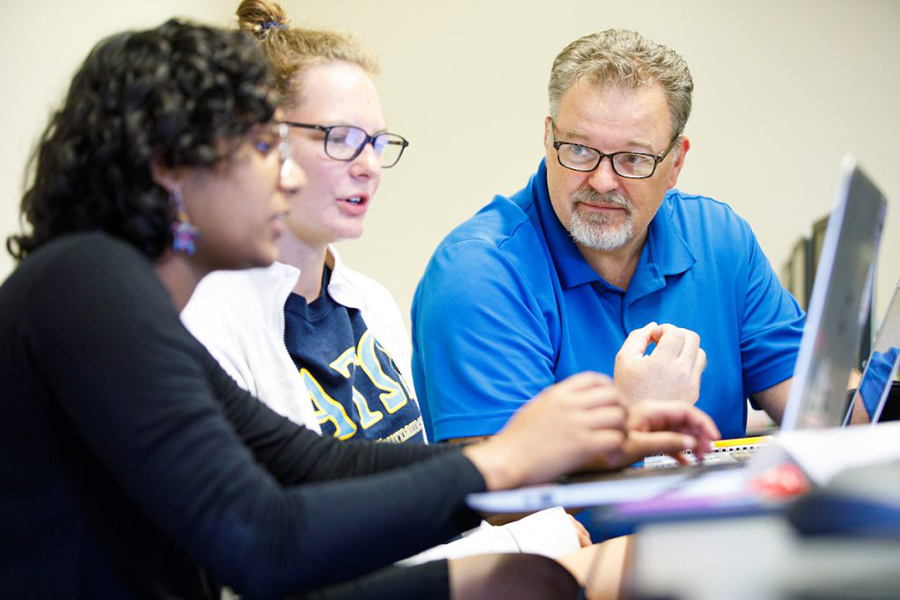Geographic Information Systems Minor
Create and use digital maps to assess and solve complex, real-world problems. Learn to use geographic and spatial data to analyze characteristics and build visual representations of the Earth’s surface.

Why Study Geographic Information Systems (GIS) at Albion?
As a Geographic Information Systems (GIS) minor, you will learn how to interpret and visualize location data to reveal natural and cultural trends, from invasive species distributions to demographic patterns. You will work closely with faculty from our Earth & Environment and Mathematics & Computer Science Departments to develop critical, technical, and analytical skills and explore interdisciplinary applications to better understand the world around us.
A minor in GIS provides an excellent foundation for careers in business management, environmental science, city planning, public policy, resource management, tourism, public health, and transportation planning, among others.
What Will You Learn as a Geographic Information Systems (GIS) Minor?
You will learn to interpret cartographic, photographic, digital, and numerical data and use it to analyze natural and cultural phenomena.
You will combine classes in geology, geography and geographic information systems with units in statistics, mathematics, or computer science.
You will gain hands-on experience applying everything you’ve learned to a directed study, a summer research experience, or an internship/work experience.


